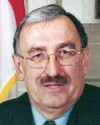I am now prepared to rule on the question of privilege raised on April 11, 2003 by the hon. member for St.-Hyacinthe—Bagot concerning the conduct of the Chair during several committee meetings of the Standing Committee on Aboriginal Affairs, Northern Development and Natural Resources.
I would like to begin by thanking the hon. member for St.-Hyacinthe—Bagot for having raised this matter, as well as the hon. Minister of State and Leader of the Government for his intervention in the discussion.
The hon. member for St.-Hyacinthe—Bagot first raised his concerns regarding proceedings of the Aboriginal Affairs, Northern Development and Natural Resources Committee on April 3, 2003. At that time he claimed that certain procedural irregularities had taken place relating to the use of the previous question during debate. He also raised the issue of the use of unparliamentary language by the Chair of the committee
On April 7, 2003, I delivered my ruling on that point of order and took the opportunity at that time to remind members of our usual practice with respect to procedural irregularities in a committee. Marleau and Montpetit, at page 858, states:
If a committee desires that some action be taken against those disrupting its proceedings, it must report the situation to the House.
At page 128, we read:
Speakers have consistently ruled that, except in the most extreme situations, they will only hear questions of privilege arising from committee proceedings upon presentation of a report from the committee, which directly deals with the matter and not as a question of privilege raised by an individual Member.
I went on to state that the matter should be dealt with in the committee. Order and decorum in committee is an internal matter and the judgment of what is or is not acceptable must be made there. I will not review the portion of my earlier ruling relating to the moving of the previous question, since that issue was fully dealt with on April 7 and is not relevant to today’s discussion.
I will instead direct my remarks to the hon. member's concerns related to the conduct of the committee chair, including the use of unparliamentary language.
As members may recall, prior to the delivery of my April 7 ruling, the chair of the aboriginal affairs, northern development and natural resources committee, the hon. member for Nickel Belt, rose in the House to withdraw the remarks complained of by the hon. member for Saint-Hyacinthe—Bagot and to apologize to all members of the House, especially to members of the standing committee, for the language he used in the heat of the moment.
In my ruling, while expressing appreciation for the gesture made by the Chair of the committee in offering an apology in the House, I pointed out that it was in committee that the issue needed to be resolved and it was there that the relationship between the Chair of the committee and the hon. member for St.-Hyacinthe—Bagot needed to be repaired
Despite the suggestion of the Speaker that members of the committee attempt to resolve the issues previously raised, it would appear the hon. member for St.-Hyacinthe–Bagot continues to have grievances about the committee’s proceedings on Bill C-7.
On Tuesday, June 10, 2003, the chair of the Standing Committee on Aboriginal Affairs, Northern Development and Natural Resources wrote to the Speaker to provide further explanation on the issues at hand. I thank him for doing so and I have shared the content of his letter with the hon. member for Saint-Hyacinthe—Bagot.
Our parliamentary system is predicated on freedom of thought and expression and indeed encourages active debate. I would remind hon. members that conflict and differences of opinion are inherent in the work we do as members of Parliament. On the other hand, members are expected to conduct themselves with decorum and to show respect for their colleagues in committee just as they are in this place. Establishing and maintaining a working environment in committee that respects both these principles is entirely within the responsibility of the committee and its members.
While it is regrettable that there continues to be tension between members of the standing committee, I would point out once again that there has been no report from the committee. Therefore, the matter remains one which, in the first instance, the committee itself must deal with.
The reluctance of previous Speakers, and of myself on earlier occasions, to intervene in the business of committees is procedurally well founded. Accordingly, as was the case the last time the hon. member brought this matter to the House, I can find no basis for a question of privilege, nor am I willing to intervene in matters that ought properly, and indeed still can be, addressed by the committee itself.








